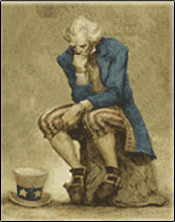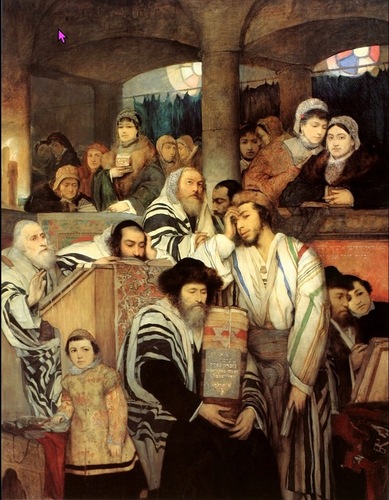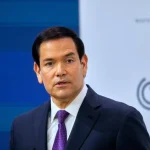
–>
October 30, 2022
We hold elections to choose substitutes for ourselves to represent our interests. It does not always work out that way. Government superimposes itself upon the people who are not part of the governing system. This is partly because people, having diverse interests, do not generally want to concern themselves with the complexities of running a regime, while those who join the government gladly accept the task of controlling others for fun and profit.
‘); googletag.cmd.push(function () { googletag.display(‘div-gpt-ad-1609268089992-0’); }); }
Then the fight starts. It’s the insiders versus the outsiders. It turns out that the only way to reverse the impact of government on people’s lives is for government to become irrelevant, not through anarchism but through self-control. For example, I have lived in neighborhoods where policemen did not tread, not because they were afraid, but because there was only very occasional need for them. The people in those neighborhoods were in control of events because they were in control of themselves. Even their children were less troublesome because that was what was expected of them.
But sometimes there is no fight between those in government and those outside it. Why would many people accept or even seek authoritarian strictures instead of demanding their freedom? Partially because they are still primitive children at heart. Waiting for mother, father, or the ‘street’ to dispense justice became waiting for the government to provide justice, revenge, or imposed peace. This tendency mirrors our feral origins, which tell us to run first and then hide. It seems people do not fight well except when they are backed into a corner and see no alternatives.

Image: Jews Praying in the Synagogue on Yom Kippur by Maurycy Gottlieb (1878). Public domain.
However, in isolated islands of humanity, our emotional sensibilities have broadened and deepened over the centuries, with the result that we have become slightly less revenge-oriented. Advanced societies seek alternatives to survival tactics, moving towards quality-of-life issues. In these enclaves, we can more easily weigh the freedom of self-control against control by totalitarians.
‘); googletag.cmd.push(function () { googletag.display(‘div-gpt-ad-1609270365559-0’); }); }
What mechanisms have we evolved to move us toward appreciating freedom? Words have helped. Without words to describe the final state we seek, there can be no discussion or clear vision. As an extension of words, we have structured rules that have helped as well. The two-thousand-year-old rule of reciprocity, “Do not do to someone else what we do not want done to us,” has worked miracles when broadly accepted and applied. Such a meme is only naïve or silly when the end game is not peace, but dominance.
Emblematic of our push towards freedom, Yom Kippur, the Jewish Day of Atonement, was only recently in our faces with words and ideas that do not appear in our normal speech patterns. In one ancient confessional prayer, the first five words (of twenty-five) are “We were guilty, we were traitorous (literally ‘turncoats’), we stole from others, we spoke slanderously, we caused others to commit nasty acts (used to be called ‘sins’).”
In our congregation, there is actually a traditional tune to accompany this acrostic poem. These words form a repository of ideas that will never disappear from Jewish liturgy, and that is what makes Jews dangerous to totalitarians who seek to destroy historical memory.
The prayer can be somewhat effective. Our relationship with any of the despicable behaviors mentioned here remains non-accusatory because each behavior is in the plural ‘we’. Each phrase is always in the past tense so as not to imply current bad behavior. In this way, one person seeks forgiveness for every other person, as well as for himself. There is no intermediary to whom to confess. Only ourselves!
For the jaded or psychopathic, the words can be glossed over, but for the average person, sometimes we have done something so horrendous that the evil grabs us in our throats as we mouth the words and we choke. That is the beginning of repentance, definitely a non-woke principle and a precursor to our much sought-after freedom through self-control.
The Lubavitcher Rebbe, Menachem Mendel Schneerson, said that one does not have to change his path to begin to repent, but merely to turn around 180 degrees. In my cynicism, I suggest here that when we make that half-turn, we can clearly see the path of destruction we have plowed in the world. If we see the pain we have caused others, and it makes us cringe or cry, Yom Kippur has been gloriously successful, and the need for central control has been diminished.
‘); googletag.cmd.push(function () { googletag.display(‘div-gpt-ad-1609268078422-0’); }); } if (publir_show_ads) { document.write(“
After learning about Yom Kippur as a young child, I have often wondered how any society could do without this type of experience in their culture. How would an individual or society ever change for the better without such a recurring opportunity to look back and evaluate our personal contributions to the decline around us?
Without something like Yom Kippur, the rut of bad thinking habits would just deepen, and we would begin to find other people annoying. Loneliness would grip us; meaningless would define our lives. Everyone else could be seen as responsible for our pain, and we could not control those people without the expenditure of enormous energy, which might sometimes be in the form of violence. Better to live in a cave provided it had a Netflix subscription.
But with the yearly recurrence of Yom Kippur, there is a small chance, a fleeting opportunity, to forgive others as we seek forgiveness for ourselves. In doing so, we are relieved in small ways of the need for external controls that chafe over much. Now, our oft-times repressive government, which is composed of ordinary people who also need to change their ways, might modify its path and spend its resources on more important issues than imposing uniform views upon each individual.
<!– if(page_width_onload <= 479) { document.write("
“); googletag.cmd.push(function() { googletag.display(‘div-gpt-ad-1345489840937-4’); }); } –> If you experience technical problems, please write to [email protected]
FOLLOW US ON
<!–
–>
<!– _qoptions={ qacct:”p-9bKF-NgTuSFM6″ }; ![]() –> <!—-> <!– var addthis_share = { email_template: “new_template” } –>
–> <!—-> <!– var addthis_share = { email_template: “new_template” } –>






